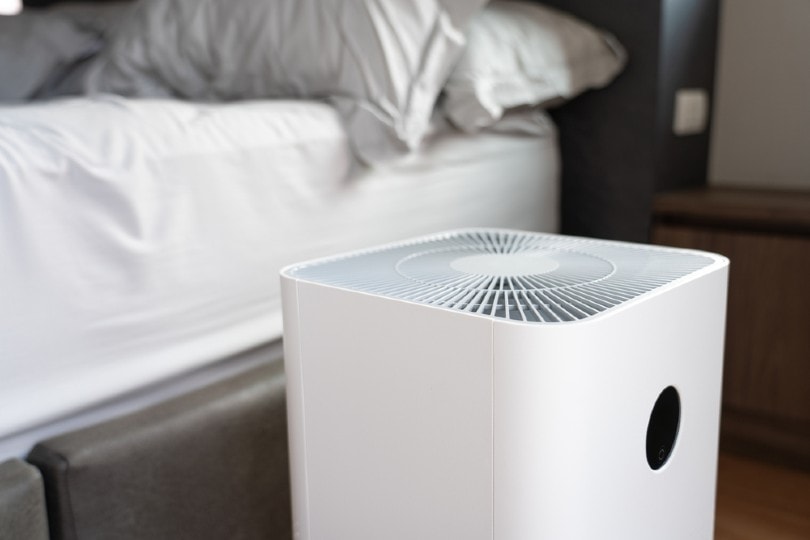
If you are looking for a pet that has a low chance of causing allergic reactions, then your solution should be a hypoallergenic pet or one without hair at all. But what if you want to cuddle up with a little ball of fluff, which mammals are allergy-friendly? While the ferret is not hypoallergenic, it is a low-shedding animal. This small, mischievous, and funny mustelid will turn your life upside down. Let’s learn more about ferrets and what to expect when it comes to their beautiful coat and your allergies.
What Makes An Animal Hypoallergenic?
Every pet is a living being that can cause an allergic reaction in a person. It is impossible to find a pet you can be 100% sure won’t cause a reaction in any human. But, what we can do is separate animals that are less likely to cause allergies—manifesting as minimal or mild reactions. Those pets that are considered truly hypoallergenic have no fur at all, like reptiles and fish. But, if your heart is set on a furry friend, then a ferret may be a good compromise.

What About Pet Hair Causes Allergies?
One of the most common allergens for people in the pet world is dandruff, which is connected to a pet’s fur. Pets that shed a lot create and disperse more dandruff than others. You can also find the same allergy-triggering compound in a pet’s saliva and urine. This means even hairless cats can cause allergies.
Why Are Ferrets Allergy-Friendly?
Ferrets belong to the category of pets that don’t shed a lot. Their seasonal shedding happens only twice a year and it lasts a couple of weeks. So, the amount of fur and dandruff they shed is much less than pets that shed throughout the entire year.
Due to the fact that ferrets use a litter box, and they don’t have a habit of kissing people like dogs, they are less likely to trigger an allergic reaction. Their urine is mostly connected to the litter box and their saliva comes in much smaller amounts than a dog’s, especially breeds that salivate more than normal.
Ferrets clean themselves, so their saliva stays on their fur, which can post a problem. However, it is certainly not as strong as direct contact with another pet’s saliva (licking). If an allergic person holds a ferret, a big possibility is that he or she can experience mild allergic symptoms due to the ferret’s grooming habits.

How to Recognize an Allergy to Ferrets
It is not easy to determine the real source of allergies unless you can go to the doctor for a checkup. There is no such a thing as a ferret allergy test, so this is not a solution for people who are wondering if they are (or will be) allergic to ferrets. The best way to test your body’s reactions is to meet a ferret before committing to owning one.
Meet only one ferret so that, if you have an allergy, your senses won’t go into overdrive like they would in a room with several ferrets.
First, enter the room with the ferret inside. Stand there for a couple of minutes, if nothing happens, come closer to the ferret. If again, nothing happens, ask the ferret owner if you can hold the ferret. Grab the ferret below his front legs with one hand and support the ferret’s bottom with the other. Stay like that for a minute or two and wait.
After a minute or two, it is a smart move to let the ferret go or the ferret will start struggling, demanding for you to let it out of your grip. Ferrets are energetic and they don’t mind much for cuddles, they prefer playing and running around.
If you don’t have any allergic reactions, it’s a good start, but make sure to monitor your allergies for several hours after to confirm. If you do, stay calm, walk out of the room and wash your hands. You can even remove the clothes you had on you when you met the ferret to keep the reaction minimal.
Can You Live With a Ferret Allergy?
As we have already mentioned, most people allergic to ferrets experience only mild symptoms, so it is possible to live with an allergy to ferrets if you have your heart set on it. But, you will need help as many of the daily duties of the job will likely trigger your allergies.
This is something you should definitely discuss further with our doctor as well before committing to, particularly if you have any additional health issues like asthma.
To avoid stronger reactions, you should:
1. Stay Away from the Cage and Litter Box
If a person is allergic to ferret dandruff, saliva, or urine, that person should stay away from the cage and litter box since they are filled with all these things. Another family member (who doesn’t have allergies) should clean the cage and replace hammocks at least twice a week and clean the litter box twice a day.
2. Clean Regularly
Outside of the cage, vacuum the areas where your ferret spends the majority of its time. But, not just floors, walls to about hip height and furniture, too. Ferrets walk on floors, climb on sofas and coffee tables as well.

3. Reduce the Number of Ferrets
The allergic reaction will be more severe if a person allergic to ferrets is surrounded by more ferrets. So, to keep the symptoms away or under control, it is a smart move to own only one or two ferrets. That way, there will be less dandruff, saliva, or urine to cause an allergic reaction.
4. Keep Ferrets Healthy
If a ferret is healthy, it will shed less, and have less smelly pee and poop. The best way to keep a ferret healthy is to feed it high-quality grain-free food and bathe it only when it gets dirty. If you bathe a ferret too often, you can cause skin irritation, which results in more shedding and more dandruff. That will lead to more severe allergic reactions.
5. Wash Your Hands After Handling Ferrets
Owning a ferret will result in some kind of interaction between a ferret and you, the owner. So, after you are done playing and cuddling the ferret, wash your hands to lower the chance of an allergic reaction. You can also remove clothes you had on to further reduce reactions.
6. Purify the Air
If a person has any type of allergies, air purifiers are a must-have addition to their home. That small machine will remove all the pollen, dust, dandruff, and other allergens from the air, which helps tremendously with allergic reactions. Besides that, it is good to air out every room in the home at least twice a day to bring fresh air in, no matter the allergies.

Final Thoughts
If you know that you are allergic to ferrets but you want one, you can have it as a pet as long as you talk to your doctor about it and are aware of the symptoms ferrets can cause you. Make sure you are aware of the seriousness of the allergy. Ferrets cause a mild reaction most of the time, but that is not the rule. Living with allergies is something we should get used to and there are remedies that can make our lives easier. The best way to fight them is to keep your surroundings clean and your ferrets healthy. While ferrets are not hypoallergenic, their effects on those with allergies can be limited by following our suggestions above.
See also:
- Blaze Ferret
- Do Ferrets Get Along With Hamsters? Everything You Need to Know!
- Why Are Ferrets Illegal In California?
Featured Image Credit: Mitskevich Uladzimir, Shutterstock









